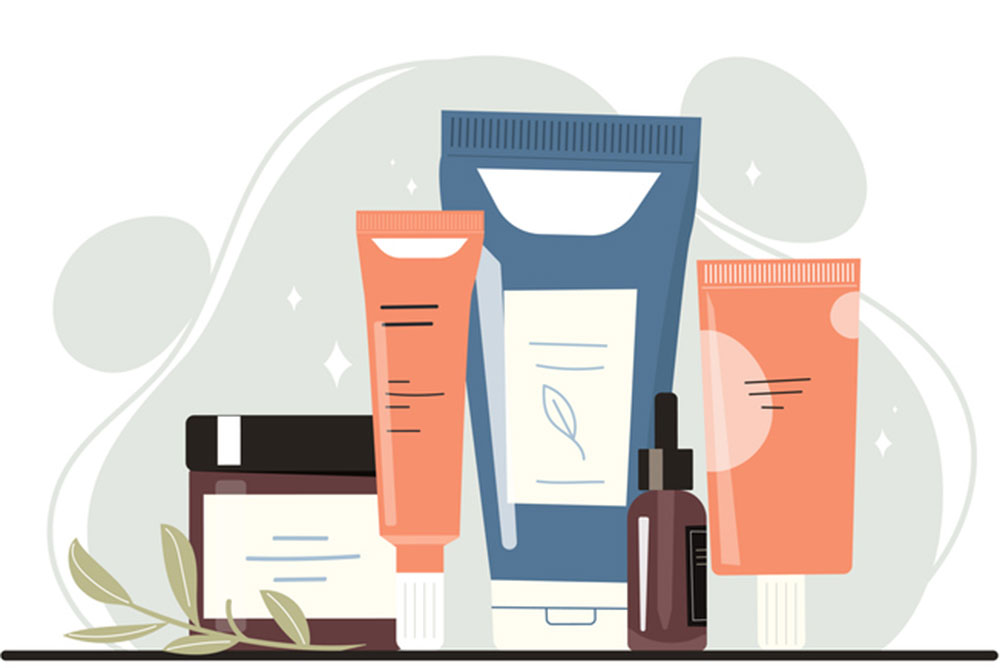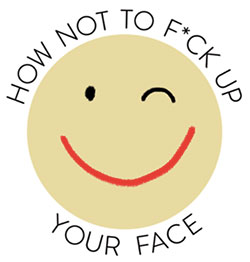By Valerie Monroe
If you’re interested in feeling happier about your appearance—especially as you age—you might like reading what she has to say about it. For more of her philosophical and practical advice, subscribe for free to How Not to F*ck Up Your Face at valeriemonroe.substack.com.
YOUR RESPONSE to my under-$50-dermatologist-approved skincare routine was big—over 13,000 of you read it—which got me thinking about what you want to see here. You’re definitely interested in skincare (no surprise), and also in what works so you don’t waste money (again, no surprise). This information, though useful, puts me in a bit of a bind. Because there really isn’t a whole lot more to say about what to buy when it comes to what you might need. Now you know those pricey creams you wish you had the extra cash for won’t serve you any better than a fine drugstore cream. That’s good news (unless you just sprang for a $490 jar of a boutique elixir) and I’m glad to be able to set your mind at ease.
But let’s say you’ve chucked the skincare you haven’t used in years (or, importantly, tried without “success”) and your bathroom vanity now contains just four products . . . how long before you succumb to the siren song of marketing magic? Here’s my guess: only as long as it takes for you to again start examining your face for flaws—and have you already nimbly jumped that shark?
Not unrelatedly, there’s a story in the New York Times about a TikTok trend you might be curious about. It’s called “skin cycling” and I chose not to mention it in my recent skincare post. Why? Because it’s just a catchy name for the sensible routine I suggested and I think it might make the routine feel more complicated. Don’t exfoliate too often and avoid it if your skin becomes irritated; use a moisturizer liberally when your skin feels dry; etc. But the title of the story, “Should You Be ‘Skin Cycling’ ?” made me wonder if I should be. And if I might need more products? Different products? Better products? 💰💰💰
From the NYT:
The concept is pretty simple: a four-day cycle that alternates between the use of active ingredients and “nights off [for recovery].” On Night 1, cyclers apply a chemical exfoliant; on Night 2, a retinoid; and on Night 3 and Night 4, a moisturizer. Cleansing is always the first step.
. . . TikTok videos with the hashtag #skincycling have billions of views. But dermatologists have been recommending routines with minimal products that promote the rotation of active ingredients for decades, albeit with their own spin and product recommendations. What was missing was a catchy name and a viral platform.
So with a catchy name and a viral platform, a new beauty trend was delivered howling into the world. And billions of people are eager to welcome it in the hope that it will bring joy into their lives (by giving them a better complexion). But a new trend can’t be bare for long; it needs a wardrobe. From a press release I received last week:
. . . Similarly to your workout routine, recovery is an essential practice within skin cycling . . . But what specific recovery products should you be adding to your skin cycle?
Constant HNTFUYF readers know you won’t find the answer to that question here. I’m bringing all this up because it’s a good example of how the beauty industry works to exploit our vulnerability—our deep yearning for “improvement.”
Of course you want pretty skin because . . . not dead yet. A healthy-looking complexion lets our comrades know we’re potentially fine helpmeets and partners. So it’s not just a vanity issue. But our desire to keep trying new products, one after another, isn’t really about getting a healthy complexion either. It’s about regaining some semblance of control over our skin, not an altogether useless objective—but a precarious one in the end. Because, being mammals, our skin has a fairly predictable trajectory; like any organic material, it evolves. We can aspire to be a Tour de France team of skin cyclers and still our face will age. And when we begin to notice our skin has aged, what do we do? We look for something to stop the process. We can, in fact, slow it down (see sunscreen and retinoids) or speed it up (see sun exposure, cigarette smoking, and pollution). But . . . what the beauty industry is selling us isn’t a solution. It’s hype.
Like any co-dependent or addict, you’re likely to slide back into your (dis)comfort zone of yearning and disappointment. It happens. But you can strengthen your resolve—and increase your happiness—by learning to look at your face as if you were a human being, rather than as an object to be judged and criticized. Find detailed instructions for that exercise here.


